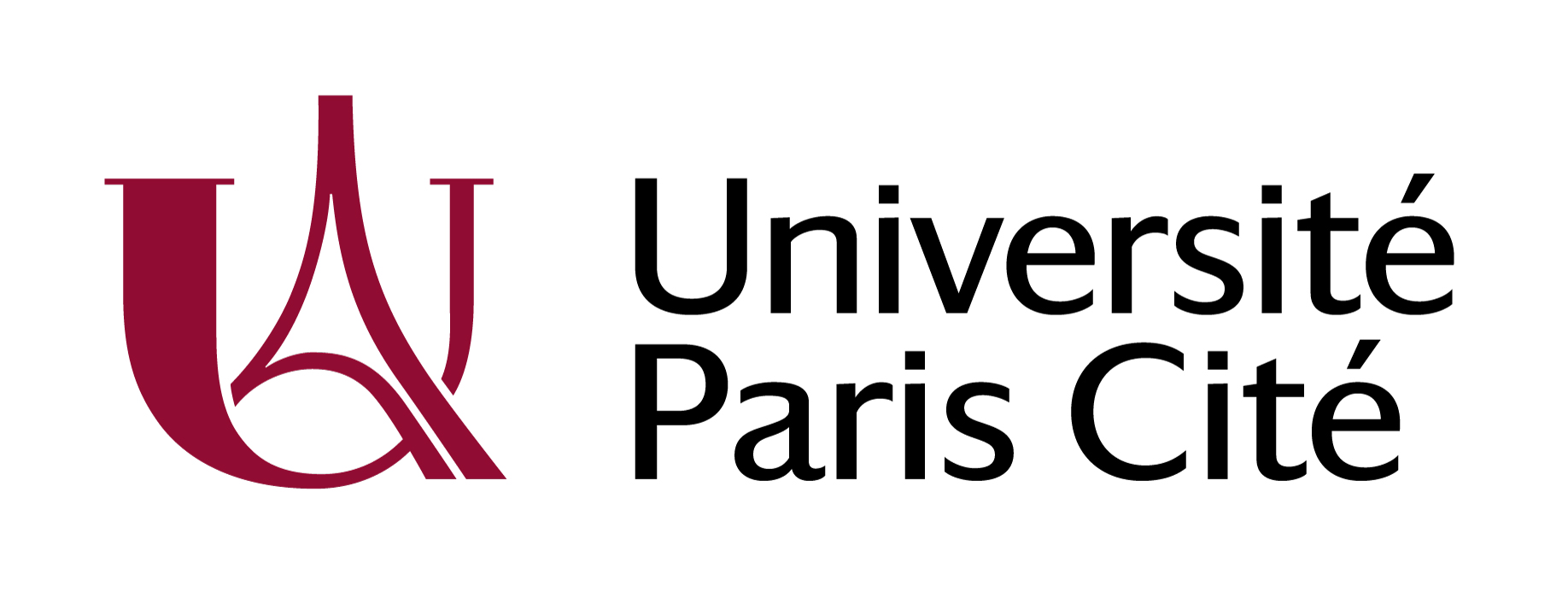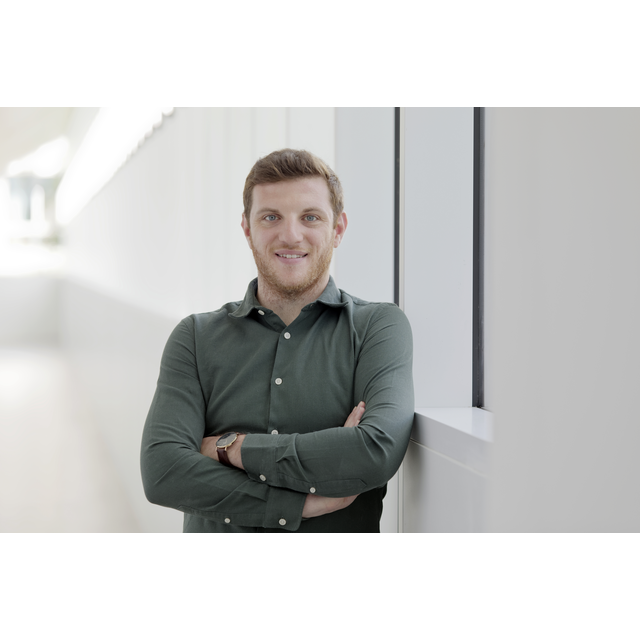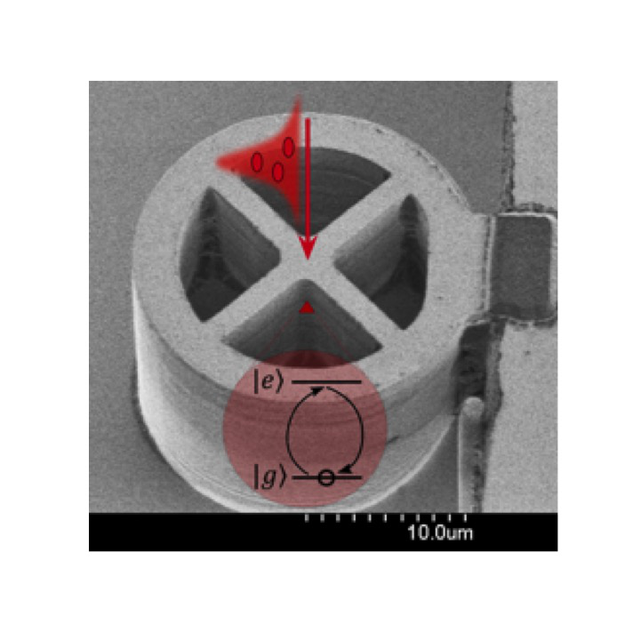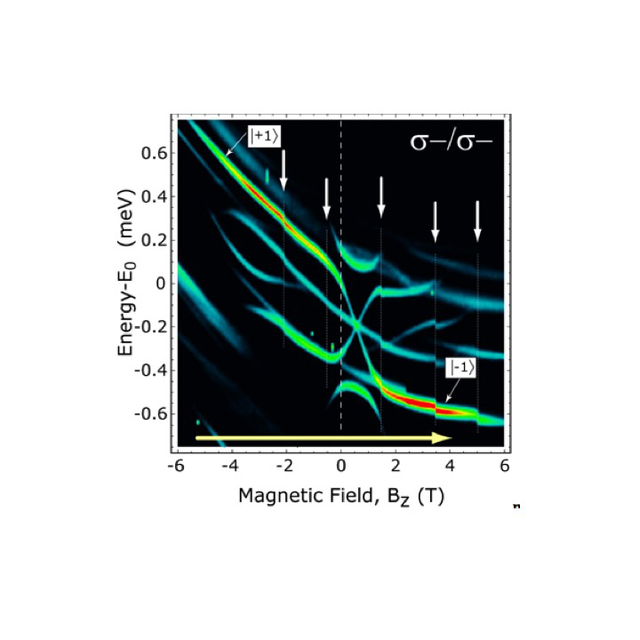On Monday 4 July 2022, the awards ceremony for the winners of the 2021-2022 Innovation Contest launched in November 2021 by the Government under France 2030 and operated by Bpifrance was held. Francesco Manegatti is the winner of the i-PhD Competition, with a Grand Prize for his Ncodin project developed at C2N.
Career Path
My school career began in Italy, in Chivasso, a small village near Turin where I studied until high school. My great passion for physics led me to pursue a university course: thus, in 2014 I obtained my bachelor's degree in Engineering Physics at Politecnico di Torino.
As part of my master's degree, I was selected to join the international study programme called "Nanotechnologies for the ICTs", supported by 3 schools: Politecnico di Torino, INP-Phelma of Grenoble and the École Polytechnique Fédérale de Lausanne (EPFL). This programme offers comprehensive training in state-of-the-art nanotechnologies, with a particular focus on microelectronics. At the end of the first year of the master's programme, I came for the first time to C2N (which at the time was called LPN) to validate my M1 internship. I had the opportunity to work on photonics, a field of research that already aroused my curiosity. On this occasion I met Fabrice Raineri, University Professor at the Université Côte d'Azur (at the time a lecturer at the Université Paris Diderot), with whom I got on immediately. I had no idea that we would embark on such a professional adventure and such a beautiful friendship! Thanks to this internship, I understood that photonics was the field of research in which I wanted to pursue my scientific career.
After spending a semester at each institution, the last semester of the programme was dedicated to the M2 internship, which I did at IBM in Yorktown Heights, USA: again, my work was focused on the study of photonic components. Thanks to this course I had the opportunity to travel and discover many different cultures, which allowed me to enrich my personal background.
After my master's degree (September 2016), I chose to undertake a PhD to specialise in photonics research. I then contacted Fabrice again for my PhD project, which I started in January 2017. The subject of my PhD was to study and develop optoelectronic components to design a laser source and a light amplifier based on a structure called photonic crystal, which is able to confine light in very small volumes (at the nanoscale). Thanks to the work developed in particular within the C2N technology centre, I was able to acquire skills in the design, characterisation and, above all, the manufacture of these components. I obtained the title of Doctor in Physics from the University of Paris Cité in December 2021.
The technology developed during my PhD will be used to address major societal issues in the information technology sector. I therefore decided to engage in the valorisation of my research work. When I proposed this idea to Fabrice, we immediately agreed on the idea of starting a business project to take this innovation beyond the research environment: personally, this has always been a great source of motivation. My first contact with entrepreneurship was the seminar "Valorise nanoscience research through business creation" in March 2020, organised by C'Nano. This seminar was a revelation and confirmed my desire to follow the entrepreneurial path. A few months after the seminar, Fabrice and I applied for and won the call for projects attached to the seminar. We were able to follow the "Centrale Entrepreneur Training" offered by the École Centrale and benefit from a personalised support by an expert entrepreneur; his precious advice helped us in the development of our startup project. A few months later, we obtained funding for a CNRS premature project, which started in September 2021 for a period of 18 months: this allowed us to benefit from personalised support from CNRS Innovation, whose objective is to follow us and support us in building the foundations of the business plan. We were also supported by CNRS Innovation's Rise support programme, which enabled us to follow the "Deeptech Founders" entrepreneurial training course and to focus not only on the scientific aspects of the project but above all on understanding and analysing the market and developing our business model. Our project NCODIN (as we call it) is the winner of the i-PhD competition proposed by Bpifrance special mention "Grand Prix".
The NCODIN project
The explosion of data exchanges linked to the Internet and the rapid evolution of sophisticated architectures to solve complex computing problems (High Performance Computing, Artificial Intelligence/Deep Learning) requires the development of technologies that allow ever higher transmission rates and computing power while maintaining energy consumption compatible with sustainable development.
The NCODIN project aims to create nanophotonic solutions for the exchange and processing of data within integrated circuits. The technology used is based on the exploitation of revolutionary optoelectronic components which, thanks to their extremely small size, make it possible to create optical links and key functionalities such as neurons and ultra-fast optical memories while drastically reducing energy consumption.
3D model representing the basic building block of NCODIN technology: a revolutionary optoelectronic device that enables the design of all components found inside a photonic circuit
The C2N environment
C2N offers a working and research environment that proved to be crucial during my PhD. We rely on this favourable environment for the development of our project: the great means we have at our disposal allow us to carry out work of very high scientific quality. The clean room at C2N is a major asset : it is one of the largest academic technology centres in Europe, enabling the development of nanocomponents of extremely high quality. But above all, the great professional and human qualities of the engineers and researchers with whom we collaborate make the working environment stimulating and exciting, which is a fundamental condition for the successful development of NCODIN.
Prospects
Our goal is to have a significant impact on society's transition to the era of ultra-connectivity and Artificial Intelligence, with a focus on the ecological preservation of the planet. NCODIN is still in its infancy but we are aware of the high potential of the project and the major stakes of the market we want to penetrate. We plan to create the company and raise the first pre-seed funds before the end of the year, to seed the startup. At the same time, from a strategic point of view, we consider that it would be very important to be hosted at C2N: as this is an innovative "hardware" project, having access to the technology centre would represent an undeniable support, in order to continue maturing our technology as well as for the design of the products we would like to launch on the market. Our objective is to accelerate our growth during 2023: we plan to apply for the i-Lab competition of Bpifrance and to look for our first private investor.
Thanks
Looking back, I can see that the project has come a long way since the day I proposed to Fabrice to undertake this road to value. This has also been possible thanks to all the people we have met and who have supported us in the advancement of this great adventure. I would like to start by thanking the collaborators of the PIMENT technology platform at C2N who have helped us in the development of our technology during these years, they have also closed ranks and done an incredible job in re-commissioning the clean room after the laboratory move. Many thanks to the administrative services and to the C2N valorisation unit, in particular Luc Le Gratiet, for the constant support and help in drafting the project's propaedeutic documents, from the application files to the invention declarations to protect the intellectual property. Thanks also to Julie Carimalo (Administrative and Scientific Coordinator at C'Nano) and Nils Balgobin (Perspectives and Innovation Officer at C'Nano) who helped us with the first drafts of the application documents with their very valuable feedback. I would like to thank Eric Langrognet (Director of the entrepreneurial programme at École Centrale-Supelec) who, thanks to his entrepreneurial expertise and his availability, gave us fundamental tips for our progress. Many thanks to CNRS Innovation, in particular to Giovanni Altamura and Feriel Hamdi who follow and support us in the framework of the Rise coaching and the prematurity project. Many thanks to the mentors we met, Guillaume Berteloot (Deeptech Founders) and Xavier Bonjour (Rise mentor) for their daily help and the time they have dedicated and continue to dedicate to the project. I would like to thank once again all the people mentioned above for their help in expanding our network of contacts. I would like to thank Fabrice deeply, first of all for our professional relationship but especially for the friendship we have had for more than 5 years and for the psychological support we give each other. This entrepreneurial adventure is very exciting and requires a lot of commitment, which sometimes leads me to dedicate more time to my professional life than to my private life. For this, I would like to thank my family, who are always by my side, even in the most difficult moments.
 Laurent Ardhuin for C2N
Laurent Ardhuin for C2N








